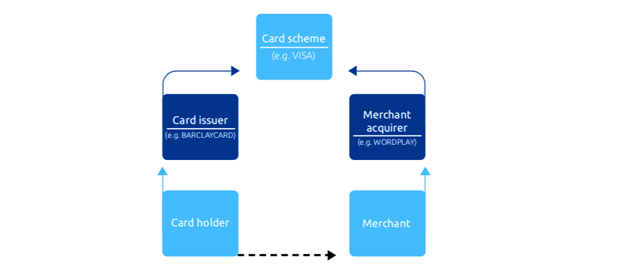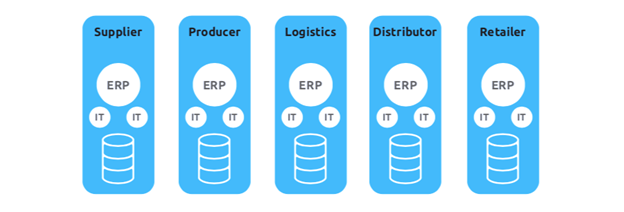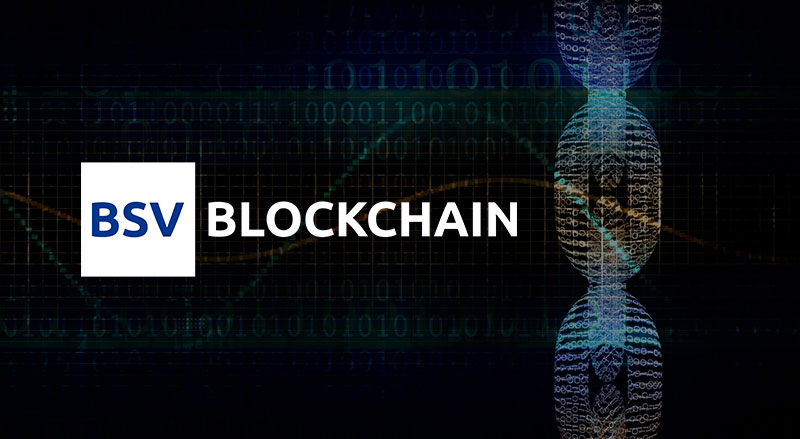In February 2022, Jimmy Nguyen, Founding President of The BSV Blockchain Association, gave a compelling presentation about the value of data at the Blockchain for Saudi Vision 2030.
After the audience on a journey of recording and storing data throughout history, Jimmy took a dive into the problems that contemporary data management systems face to build up to where blockchain fits in.
We invite you to watch the presentation or read the transcript below.
1. Intermediaries lead to inefficiencies

Almost every modern business network has companies or people in the middle that create inefficiencies. Take, for example, the process of making a credit card payment anywhere in the world. I am the cardholder. I got my payment card from a card issuer – a bank that has an agreement with a payment card scheme like Visa or MasterCard. They have their own agreements with merchant acquirers who have to go out and acquire individual merchants. At each step of that process, you have to trust data being transferred to each intermediary. And there is a cost – someone is taking additional cuts of money along the way. In the same way, intermediaries in our data system also create inefficiencies.
2. Data silos across an industry value chain

In most industries, data systems are compartmentalised into silos. At times, even the data within a single organisation is stored in different silos. For example, a company might keep its sales data separated from its customer service and marketing departments. In such a scenario, it is incredibly difficult to get a comprehensive view of all the data and almost impossible to access it all in real-time.
This also results in tremendous inefficiencies across an industry’s entire value chain. You may have different companies functioning as your supplier, producer of products, transporter of goods, logistics provider, distributor and ultimate retailer, all working with different databases, which means they cannot access the data they need at the same time.
3. Private databases are not publicly accessible nor verifiable
Databases are typically private, so you cannot publicly access or verify the data. If you’re an outsider to a company, let’s say Amazon, they are not going to give you access to their database. So, if I am in their e-commerce retail chain, I cannot verify whether their data matches my own. As a result of the privacy of their database, you would need to acquire special permission to get into the locked file cabinets of each database owner. Even worse, you would not be able to verify if the company has made any changes to the data along the way.
4. A native way to transmit payments with data
The next problem with data management in its current form is that there is no native way to transmit payments with data – and this is critical.

Above, you see the application layers that were generated when the Internet emerged in the 1990s. All of these are different types of protocols, or rule sets, to transmit data. That’s what the Internet protocol is – a way to transmit information. However, when the Internet was created in this tech stack, there was no native way to send payments, for example, by email or every time I accessed the Internet.
5. No easy way for consumers to own and monetise their data
From our Internet browsing history and social media interactions to the purchases we make on Amazon, we each generate a huge amount of data. And yet, we do not own the data we create. Even though people tell us that our data is valuable, we do not have a way to monetise it.
Unleash the value of Extreme Scale data with the BSV blockchain (eBook)
As you may have heard, blockchain technology is the next major technology leap of our lives since the Internet, but most people don’t fully understand why.
The answer lies in data and the ability for blockchain to create a better world by better optimising, managing access to and monetising it.
Our eBook ‘Unleash the value of Extreme Scale data with the BSV blockchain’ will let you discover:
- The traditional problems with data
- Blockchain’s solution to traditional problems with data
- Use cases of blockchain solutions to data problems
- Why the BSV blockchain is best to implement a blockchain solution
